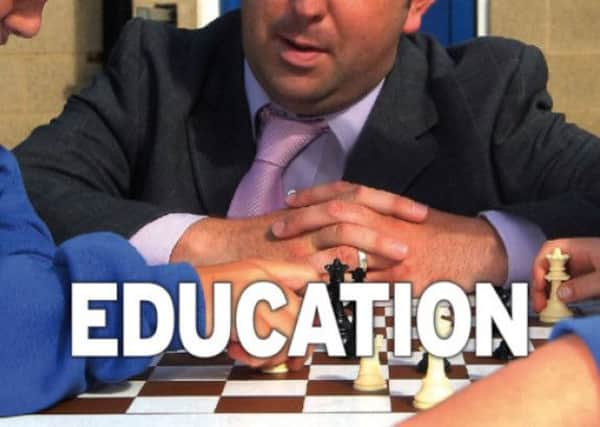Schools facing '˜unprecedented financial pressures'


Kathleen O’Hare from Hazelwood Integrated College and Dr Michelle Rainey from Ballyclare High School spoke out this week in response to the Department of Education’s recent announcement detailing the funding allocation for schools for the coming year.
Head teachers from schools across Northern Ireland have joined together to voice concerns about the difficult financial situation facing post-primary schools.
Advertisement
Hide AdAdvertisement
Hide AdA statement released by the Association of School and College Leaders warned that budgets are “already overstretched” and that many local schools are now facing “unprecedented financial pressures.”
“With school budgets already stretched to breaking point by successive cuts in recent years and all reasonable, cost reducing steps having been exhausted, a new survey reveals that schools now face unprecedented financial pressures and will be running deficits of between £150,000 and £500,000. This will have a direct and significant detrimental effect on the quality of education currently offered to pupils,” the statement said.
The Association, which claims Northern Ireland education is at a crossroads, says the budget cuts will have a number of potential knock-on effects, including a reduction in subject choices at GCSE and A Level, larger class sizes and a potentially shorter school day.
Speaking to the Times about the situation, Mrs O’Hare said: “The Department of Education expects schools to do more with less. I’m very angry that the Department brought out these cuts at a time when the window for making people redundant was closed. They also took away one of the mechanisms for us to cut staff, which was the proposed 55 plus scheme. You get the feeling that no one really cares and schools are going to be left in a continuous mess.
Advertisement
Hide AdAdvertisement
Hide Ad“We’re now in a position where we will have to make difficult decisions. This didn’t become an election issue and I feel it should have. If there’s a belief that areas like north Belfast should regenerate, stop investing in our past and start investing in our future. If you fund education properly then you don’t need to fund health to the same extent as there is a direct link between better education and wellness in society. I’ve been principal for 14 years and this is the first time I’ve really worried about the budget.”
Dr Rainey said many local schools are facing difficult times.
“There is only so far you can stretch the budget you’ve been given and this will undoubtedly have knock-on effects for our extra-curricular offer in particular,” she said. “We are having to make cuts in certain areas to protect the curriculum. We have absorbed the necessary staff reductions since 2010 and that has impacts on our curricular offer and an increase on our class sizes. We’ve already made cuts for next year to our ancillary staffing, to our budget for school transport for sports, games and competitions as well as to our to our teaching staff. The bigger classes are going to impact on the time and the energy that staff have to give their voluntary contributions to the likes of those extra programmes.
“We’ve taken our cuts and we’ve taken our hits and we’re now at a stage where we can’t absorb anymore. We want to develop the whole child and really for me that is the bottom line in all of this.”
Advertisement
Hide AdAdvertisement
Hide AdThe Association of School and College Leaders has appealed to local politicians to address the current financial crisis.
“Together we call on our politicians to reconsider these plans and find the cost savings in administrative and other areas which will have less potential impact on the futures of Northern Ireland’s pupils. Surely Northern Ireland’s priority must be to invest in the future of our children,” the statement said.
The move to contact the media about the school budget situation was described by one local principal as “a last resort”. They said: “Very often as a fraternity we don’t go and agitate, we get on with it. This is a last resort - this is not what we want to do.”